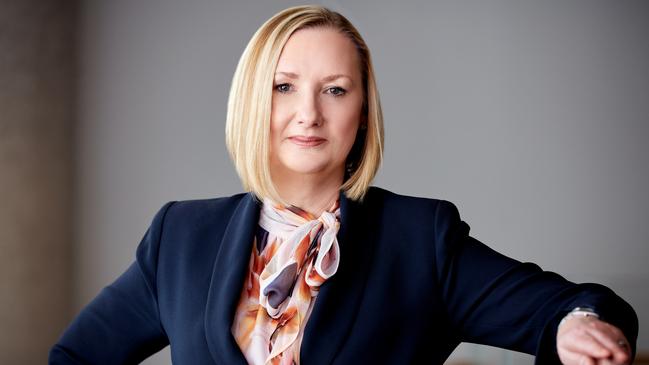Chief Executive Women maps out policy changes to encourage more women workers
Policy changes including modernised paid parental leave and updates to the tax system could help unlock female participation in the workforce.

Chief Executive Women is calling on the federal government to boost its investment in universal access to early childhood education, increase the JobSeeker payment, modernise paid parental leave, and update the taxation system to better support working parents.
In its pre-budget submission released on Thursday, CEW has called for policy changes it says will “help unlock” more female participation in the workforce.
The lobby group of some 1200 leading business women argues that a million additional full-time skilled workers could be available in Australia if women engaged in paid work at the same rate as men.
CEW president Susan Lloyd-Hurwitz said the federal government had the ability to “turbocharge” the economy by tapping into the highly educated and skilled workforce of Australian women”.
“The best way to boost productivity and build an economy that reflects modern Australia is to invest in gender equality for the good of all – men and women,” she said.
“There is an immediate opportunity to address these important policy settings in the budget.”
She said Australia’s current childcare system was not fit for purpose and needed to be fixed.
She said a recent report by the Productivity Commission supported CEW’s position on the need to overhaul the current system by investing in universal access to early childhood education and care, and relaxing or abolishing the childcare subsidy activity test.
“Early education remains a significant cost-of-living pressure for families, with Australia’s early childhood education among the most expensive in the OECD,” Ms Lloyd-Hurwitz said.
“If we can improve the early childhood education system, we will unlock a workforce that already exists, uplift productivity, improve cost of living pressures for families and most importantly give our children the best start in life.”
CEW is calling on the federal government to amend the paid parental leave scheme by introducing “use it or lose it” provisions to encourage men to take up their entitlement.
It says this would also break down the gender norms around caring for children.
“The government’s new scheme will see a family’s access to paid parental leave increase from 20 to 26 weeks. This is a positive outcome for women, but also a great opportunity for men, who should be entitled to at least six weeks of this allocation,” Ms Lloyd-Hurwitz says.
“These measures will address the conundrum faced by the 80 per cent of Australian fathers who agree that they are equally responsible for the care of their children, yet only take 14 per cent of paid parental leave.”
CEW is also calling on the federal government to pay superannuation on paid parental leave “to ensure that those undertaking unpaid care work do not miss out on crucial years of superannuation accumulation”.
“The Association of Superannuation Funds of Australia (ASFA) has estimated that paying superannuation on paid parental leave would cost the taxpayer about $200m,” Ms Lloyd-Hurwitz said.
“This is a modest investment in Australians’ economic security in retirement, and it is also a budget measure that will not increase inflation.”
She said women approaching retirement had 23 per cent less superannuation than men.
“This measure will provide greater financial security for women in retirement,” she said.
CEW is also calling on the government to invest in more secure, well-paid jobs in the care sector.
“The government must place meaningful value on the care economy,” it says. “Care work, despite being vital to the wellbeing of every Australian and the largest employer in the country, continues to be systemically undervalued and underpaid compared to other sectors. Care industries face critical workforce shortages, low wages, high levels of burnout and a lack of secure employment opportunities.”
Ms Lloyd-Hurwitz said students completing vocational placements such as teaching and nursing were not considered employees and therefore are not entitled to receive a minimum wage or any other entitlement.
“This needs to be rectified,” she said.
The submission also calls on the government to prioritise women’s housing and address homelessness, increase JobSeeker payments, and “consider gender impacts in policymaking to ensure no woman is left behind in the development and delivery of the budget.”







To join the conversation, please log in. Don't have an account? Register
Join the conversation, you are commenting as Logout